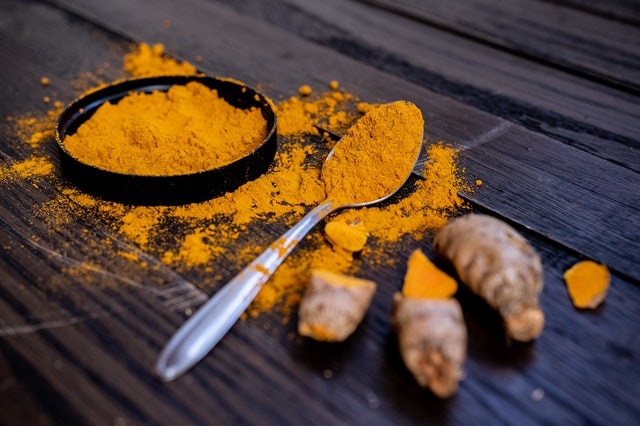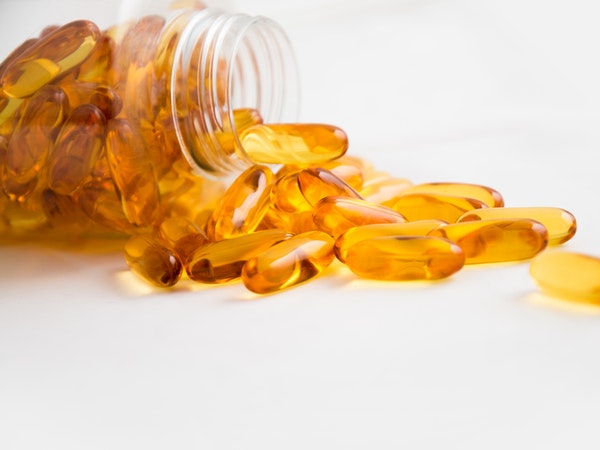Memory Supplements Can Help Boost Brain Health
Do you feel like you’re suffering from memory loss? Loss of memory can be due to a host of factors that you may not even be aware of. You may want to check out what causes memory loss to see if your symptoms can be related to some other culprit. If you’ve done everything possible and find that you’re still having difficulty remembering things, then consider trying memory supplements.

To The Point - 7 Memory Supplements
- Omega 3 Fatty Acids (Fish Oil)
- Ginkgo Biloba
- Turmeric Curcumin
- Caffeine
- Creatine
- Bacopa Monnieri
7 Brain Supplements To Help Improve Memory
- Omega 3 Fatty Acids (Fish Oil) are so incredibly beneficial to the brain, that if you were to take one vitamin daily, this should be it! Fish oil benefits the brain in so many ways. It’s a healthy polyunsaturated fat that reduces inflammation, improves nerve conduction, improves brain function, and can even help prevent or alleviate symptoms associated with Alzheimer’s, and dementia. People with depression and anxiety have also shown improvements after taking a fish oil supplement. Omega 3 foods would consist of salmon, Sea bass, oysters, sardines, seaweed, chia seeds, walnuts, flaxseed, edamame, and kidney beans. As you can see, omega 3 benefits are endless, but there are a few things to consider. Fish oil side effects may include fishy belches, diarrhea, nosebleeds, low blood pressure, high blood sugar, and acid indigestion. Also, try to take fish oil supplements in the morning to avoid sleep disturbances. Do not exceed the recommended intake of fish oil to avoid any negative side effects. Fish oil improves brain function; however, it may be hard to turn off brain activity during the night if you take it closer to the evening.
- Ginkgo Biloba comes from the ginkgo tree and is known for its brain boosting abilities, which could help curb memory loss. Ginkgo biloba benefits the brain in numerous ways. It contains lots of antioxidants to combat oxidative stress. Oxidative stress can contribute to inflammation, tissue damage, cognitive impairment, and mood disorders, so keeping it in check with ginkgo biloba would help with memory. Ginkgo biloba can also help curb inflammation. Inflammation blocks oxygen from reaching the tissues from the capillaries, which results in lower oxygen levels. Low oxygen levels in the brain lead to cognitive decline. Inflammation also blocks the neural pathways making it harder to send signals and for the brain to function properly. Ginkgo biloba is also known to increase blood flow throughout the body, including the brain, which means there’s more oxygen reaching the brain. Therefore, this brain supplement is known to boost antioxidants, reduce inflammation, and increase oxygen to the brain, which would all result in improved brain function.
- Turmeric Curcumin is known for its powerful anti-inflammatory abilities, which clear the neural pathways for proper brain function. Make sure to take turmeric warmed up and with black pepper. This helps activate the curcumin properties. Turmeric benefits are abundant, which include powerful antioxidants, brain cell growth, and reversing can help clear damaging plaque buildup in the brain that is known to cause Alzheimer’s.
- Caffeine in coffee is known to stimulate the central nervous system and increase dopamine production, which is one of the reasons you feel more alert after consuming a cup of coffee. It inhibits adenosine, which is a neurotransmitter that promotes sleepiness, while increasing the stress hormones, cortisol and norepinephrine. Norepinephrine is closely involved with memory consolidation. Caffeine also increases serotonin, which is why caffeine can actually be a mood booster. In moderate amounts, caffeine can actually boost brain function, improve focus, memory, and even possibly reduce your risk of age-related degenerative diseases, such as Alzheimer’s or dementia. However, drink too much and it will have the reverse effect. Drinking too much coffee will pump excessive stress hormones in your body, making it harder to sleep. Memory consolidation happens while you’re sleeping, so if you’re not getting enough sleep, then this will affect your ability to remember things. Consuming between 100 mg – 200 mg of caffeine a day, can help boost your memory. There is typically 100 mg of caffeine in coffee, so shoot for 1 – 2 cups of coffee per day if you are trying to boost your memory. Learn more about caffeine’s effect on the brain.
- Creatine usually comes from red meat and fish. It is commonly used to boost physical performance, but what some people don’t know is that it can boost mental performance as well. It boosts dopamine production, stimulates mitochondrial function, and facilitates the production of adenosine triphosphate (ATP). Dopamine is involved with the process of forming new memories, while the mitochondria creates energy to be stored in ATP. Cognitive activities, such as memory, rely heavily on ATP, so the more of it will help improve memory. Normal creatine levels are between .84 – 1.21 mg/dL, so make sure you are within this range for optimal brain function. Learn more about creatine benefits.
- Bacopa Monnieri is an herb commonly used in Ayurvedic medicine, which has been known to boost brain function and memory. Bacopa contains bacosides, which protect the brain from oxidative stress by facilitating antioxidants to fight free radicals. It also stimulates the hippocampus, which is the portion of your brain responsible for memory. Bacopa benefits may also include a reduction in stress, anxiety, inflammation, and blood pressure. The decreased inflammation and regulated blood pressure can clear the neural pathways within the brain, which can boost cognition.
How Does Brain Function Affect Memory?
The hippocampus is the part of the brain responsible for the formation and storage of memories. This means the size, strength, and ability to neurologically send communications between this part of the brain, would help determine whether someone is prone to memory loss or not. Any deterioration or interference in this portion of the brain would result in memory loss.
The brain has neuroplasticity, meaning it’s adaptable and able to create new neural pathways, reversing any damage caused by injury, chronic stress, or inflammation. The damage can be reversed through physical exercise, brain exercise, diet and meditation, which have all been shown to decrease stress, while increasing the size of your hippocampus.
Learn more about Habitat for Wellness

